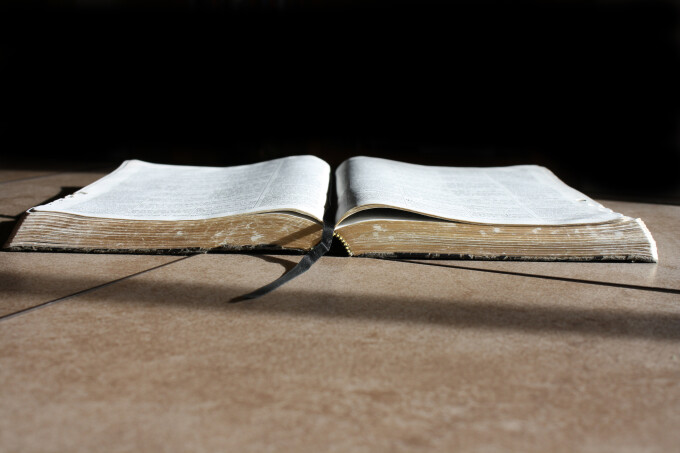Worship - October

This Sunday we celebrated the Lord’s Supper, and even though we are doing it somewhat differently than what we have in the past, this is something that each of us has done at least a couple of times a year since we became Christians. In nearly every church I have been in, the leadership of the church sets aside a few minutes to remind the congregation of the importance and solemn nature of this ceremony. Even with these constant reminders, however, our tendency is to lose our wonder and grow accustomed to what is being celebrated. We eat the bread, we drink the cup, and before we know it, it’s all over with and we’re ready to move on with our day. If we are not careful, our muscle memory takes over, and we have consumed the elements and barely given any thought to the Gospel. I don’t think that is what Christ had in mind when He said, “Do this in remembrance of me.”
Oftentimes when I am meditating on the Lord’s Supper I like to go back to the Old Testament. I love the Old Testament because the more I study it, the more I understand how it points forward to the atoning sacrifice of Christ on the cross. And when it comes to the Lord’s Supper, I love to go back to the Passover in particular. It was during the Passover feast that Christ gave his disciples the ordinance of the Lord’s Supper, and I have no doubt that He did so for a reason. There is a song that I came across a couple of years ago which I think beautifully connects these two earth shattering events, and helps us to refocus our hearts on the cross during communion. The song is by Caroline Cobb and Sean Carter, and is called “The Passover Song”. The song begins with the phrase, “There’s a promise in our veins, but it’s faded by all these years in chains.” It speaks of the children of Israel held captive in Egypt, and reminds us of the promises that God made both to Adam and Eve and to Abraham. To Adam and Eve God promised that their offspring would crush the head of the serpent, though the serpent would bruise his heel (Genesis 3:15), and to Abraham God promised that through his offspring all the families of the earth would be blessed (Genesis 12:3, Galatians 3:7-9). Thus within the bloodline of Abraham's offspring there was a promise of blessing and redemption. The problem was, the children of Israel were hopelessly enslaved in the land of Egypt. Telling of the coming of Moses, the song goes on to say, “Send a prophet, send the plagues, That by sunrise we will no more be slaves."
Bringing us to the very night of Passover, the song then says, "Take the lamb, take the blood, and paint it on our doorways. At night death will come but pass us by... This is all our hope and peace". God's wrath was coming down upon the nation of Egypt, manifested in the death of the firstborn of every single family in the land. But in His graciousness, God provided a means of escape, and anyone who would kill the lamb, consume its flesh, and paint its blood on the doorway of their house, their household would be spared. The nation of Israel was then instructed to reenact the ceremonies of Passover as a means of remembrance, teaching one generation after another of God's salvation that came through judgment.
However, within the story told through this song we take a sudden turn when it says, "There's a poison in our veins, and it leads to death we cannot escape." Romans 5:12 reminds us that coursing through each of our veins is death which comes through sin. This time, however, the song does not call for a prophet and plagues, but says, "Send a ransom, a perfect son. Remedy the curse by his precious blood." As bad as the "years in chains" were for the nation of Israel, their slavery pales in comparison to the curse of sin. Thus no animal's blood would ever be sufficient to wipe away the stain of sin.
Now, completing our journey from the Passover to the cross, the song says, "And the lamb that will come, his cross will be our doorway. And the red of His blood will make us white. And the daughters and sons rejoice in resurrection! And death is swallowed up in endless life."
This is what we are celebrating and remembering when we eat the bread and drink the cup together, and in doing so we are proclaiming the Lord's death until He comes.

